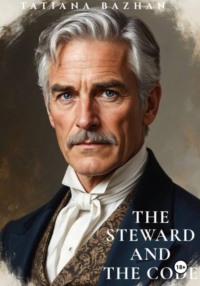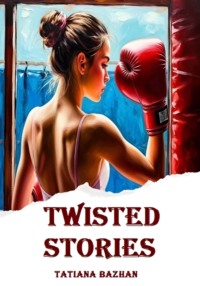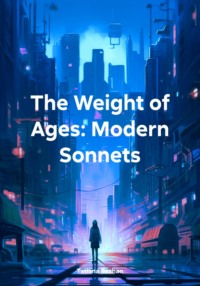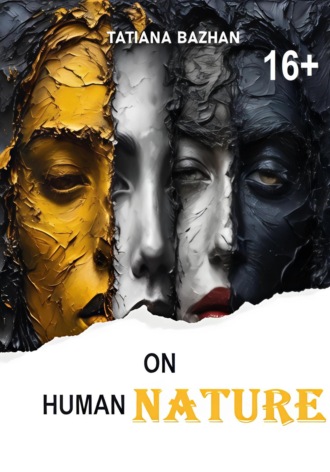
Полная версия
On human nature
One quiet afternoon, while sipping tea, Lorna had an epiphany. The solitude she was lamenting wasn’t about a lack of company, but a yearning for a past self. It was a longing for the girl she had been, unburdened by responsibilities, free to chase whims and dreams without the weight of expectation.
Her “loneliness” was a nostalgic echo, a desire to shed the mantle of adulthood and briefly revisit the carefree innocence of her childhood. It wasn’t a complaint against Louis, but a quiet conversation with her own soul. Understanding dawned, and with it, a sense of peace.
Story 21

The fluorescent hum of the office was the soundtrack to Hagan’s existence. Every day bled into the next: wake, work, eat, sleep, repeat. He believed he was living a healthy life.
He started his days with a smoothie full of vitamins and minerals and went straight to work, where he would spend his day doing the same routine with projects, meetings, reports until the sun went down. He found solace in his organised schedule, the predictable rhythm, a comfort against the chaos of the outside world. He would sometimes even work overtime.
But Hagan hadn’t seen a proper sunrise in months. The sunlight, once a daily companion, was now a distant memory, replaced by the pale glow of his computer screen. He would be in the office by the time the sun rose and leave after it went down. When his colleagues would wonder about Hagan, he would say that he had to keep up with all the new trends.
Hagan considered his life healthy. He spent most of his day sitting down like a healthy human, only sometimes suffering from insomnia at night.
Story 22

This story starts with shadows that were dancing on the walls, whispering secrets of love turned sour.
Ethan, once bright-eyed and full of promise, now drowned himself in the bottom of a bottle, each sip erasing memories of his self-confidence. Megan, with her heart stitched together by hope, toiled endlessly at two jobs, her hands calloused, yet, tender as she was fighting to mend their love.
Every paycheck was a desperate plea, funneled into the hands of doctors and therapists who promised salvation. Yet, with each session, Ethan seemed to slip further away, while Megan clung to the notion that love alone could heal him.
Nights turned into endless nightmares, filled with tears and prays.
One moment, as she caught his reflection in the glass of an empty whiskey bottle, Megan realised she was drowning, too. Their love, once a blossoming flower, had become a suffocating vine, wrapping around their souls. And as the storm raged on, she had to decide: to save herself or him.
Story 23

There was no one in the world who hated men as much as Alex’s grandmother. In her eyes, they were the source of suffering and betrayal, the personification of everything bad. She hated them passionately because her only daughter, Jordan, full of hopes and dreams, was trapped in an unsuccessful marriage and eventually broke it off, leaving traces of bitterness in her heart.
Jordan, tired of her mother’s constant criticism, named her daughter Alex – in honour of her uncle with whom only shadows of memories were associated. But the grandmother looked at her granddaughter with discontent and hostility, seeing in her something exorbitant. Every time she was saying the name Alex, the grandmother smirked, as if this name was a symbol of many mistakes and humiliations.
Alex grew up in the atmosphere of incessant hatred. Her childhood was filled with silent condemnation, and she, like a delicate flower, blossomed among thorns. She tried to find her own way, but her grandmother’s shadow always hung over her, making her feel the heavy burden of the family curse.
Story 24
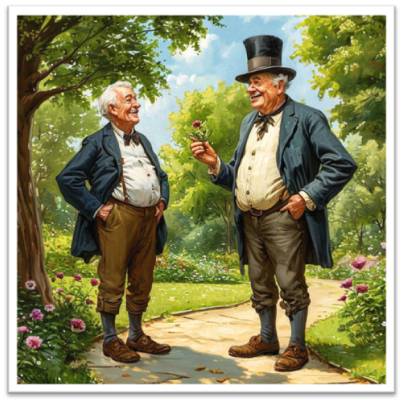
Dr. Calvin Harper was consumed by his obsession. In the dim light of his cluttered laboratory, surrounded by bubbling beakers and scattered research papers, he was seeking the ultimate breakthrough: a source of nonstop energy for the brain. Caffeine coursed through his veins, the aroma of freshly brewed coffee mingling with the bittersweet scent of dark chocolate. He experimented tirelessly, blending fruit shakes bursting with vitality and scattering pumpkin seeds like breadcrumbs toward a solution.
Days melted into nights, sleep a distant memory, as he dwelled deeper in his pursuit. The initial euphoria of each concoction gave way to fleeting moments of clarity, only to be followed by the fog of fatigue that crept in like an unwelcome guest. His mind – a labyrinth of thoughts – began to lose its edge. Friends expressed concern, but he brushed them off, too lost in his data and dreams.
Yet, in his fervour, he overlooked the simple alchemy of life: sunlight, movement and rest. It was during a rare moment of quietness, the sun breaking through the lab’s grimy windows, that realisation dawned upon him – a mind, like a machine, required care, maintenance and balance, not just fuel.
Story 25
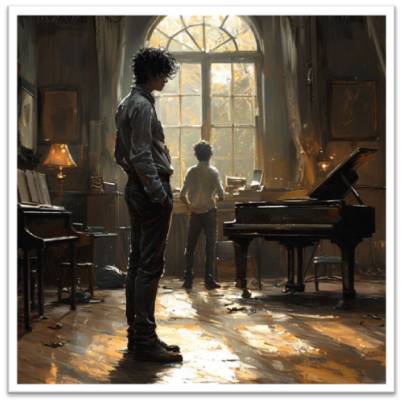
In a small park in a sunlit afternoon, two gentlemen found themselves embroiled in a heated debate on the nature of happiness. Mr. Thistle, the stout fellow with a belly that jiggled like jelly, declared, “Happiness lies in wealth! Just think of the glorious feasts I could have, the fine suits I could wear!”
Mr. Willow, the lanky gentleman whose trousers threatened to fall at every moment, was standing opposite his friend. “Nonsense, dear Thistle! True happiness is in good health! Without it, what joy is there in riches? I could run, jump, and dance!”
As their argument escalated, they threw out more items from the happiness checklist: “Self-realisation!” “Family!” – each claiming the crown of happiness while oblivious to the glaring irony, for both lacked precisely what they were championing.
Amid their chatter, a lazy cat was lying sprawled in a patch of sunlight, blissfully licking its paws after a satisfying meal. It glanced at the two gentlemen and yawned, as if the world of their discontent was utterly irrelevant. With a flick of its tail, it stretched, relishing its simple joy, a king in its own sun-drenched kingdom.
Story 26
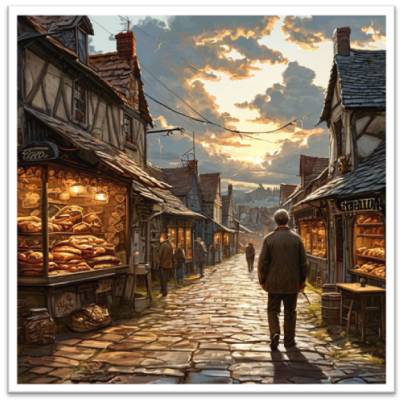
Eli was standing at the edge of the dimly lit studio, his slender frame silhouetted against the polished wooden floor. His delicate features, framed by tousled black hair, betrayed his nervousness as he was watching the others gliding effortlessly across the room. Each leap and twirl resonated within him, stirring a longing he often concealed beneath a facade of meek compliance. Though the rhythmic pulse of music was playing in his heart, the harsh clang of duty echoed in his mind, a reminder of his parents’ expectations.
“Fighting is strength. You must be able to protect yourself,” his father had said, a hand firmly clasping Eli’s shoulder. “It’s what we do.” Yet, beneath the weight of expectation, Eli felt a different kind of strength – one rooted in grace, in storytelling through dancing movements. He imagined himself on stage, vibrant and alive, the audience captivated by the poetry of his body.
But the uniformed shadows of his parents who worked as police officers loomed large, casting doubts over his dreams. Each day, he wrestled with the duality of his existence – the boy who yearned to dance and the son destined to defend. The world of ballet beckoned softly, and Eli knew he had to choose, to step out of the shadows and into the light of his own dreams.
Story 27
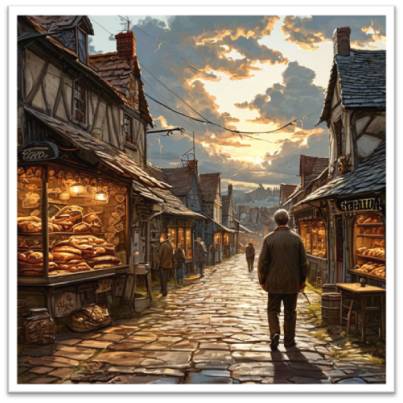
Once in a small town, an old man named Gerald was walking along the street. His insatiable greed cast a shadow over his life. Each day, as the sun rose, he found himself consumed by an overwhelming desire to save every penny. A simple trip to the bakery, where the warm scent of freshly baked bread beckoned, became a source of dread.
Gerald’s discontent swirled like storm clouds above him. The thought of spending money on bread, a basic need, transformed into a self-inflicted chaos. He would argue with the bakers over prices, his face twisted in frustration, as he calculated every possible way to cut corners. The weight of his avarice bore heavily on his mind, manifesting in relentless headaches that throbbed like a warning bell.
One fateful morning, while grappling with another mental battle over the price of a loaf, he collapsed. The doctor’s diagnosis was severe; he had suffered a stroke. In the quiet aftermath, as he was lying in his hospital bed, Gerald faced the stark reality of his choices. The pursuit of hoarding wealth had left him bankrupt in the most precious currency of all: peace of mind.
Story 28

In the heart of the city, where every step seemed like a trial, Colin shadowed his life by anger. Every casual glance, every word full of contempt, added fire to his rage. He worked in a small workshop, where he often found refuge from the humiliations that life so generously laid out before him. But even in his morning creations, Colin found no peace; his hands, tempered by anger, created only bowls full of discontent.
One hot summer day, his anger reached its peak. He went outside, ready to do anything to extinguish his inner fire. But suddenly, something unexpected happened: he noticed a shard of a mirror on the ground and looked into it, his eyes saw ugliness, both internal and external. This moment, like a sharp plot twist, turned Colin’s world upside down.
Rage is his inability to see beauty, his impotence, his loss of self-control. “What if I turn rage into calm and love for the world, will it be a path to my healing?”
At this very thought he produced something that looked like a smile, far from perfection but full of purity and warmth.
Story 29

In a sunlit room filled with the gentle hum of afternoon, Leslie was cherishing her rose on the windowsill, a vibrant blossom that stood as the golden centre of her small universe. Each morning, she tenderly watered it, her hopes intertwining with the curls of steam rising from the cup of rich tea that accompanied her rituals. Yet, unbeknownst to her, every droplet spilled onto the soil found its way across the fence to her neighbour, young Lewis, who thrived in a way that made the petals blush deeper with life.
As the seasons danced, Leslie discovered a curious, almost magical bond; her rose’s health seemed linked to Lewis’s joy. When she pruned a thorn or snipped a leaf, however, a chill spread through the air, and Lewis would fall ill, languishing in the shadows of his room, pale and wan. Alarmed, Leslie hurried to tend her precious rose, but each act of care was burdened with the uncertain weight of Lewis’s fate.
In the twilight hours, she learned the delicate balance of love and sacrifice. To nurture one was to imperil the other, the intertwined lives echoing the beauty and fragility that flourished in their shared garden of existence.
Story 30

Once upon a time, in a town adorned with narrow streets and blooming gardens, a young woman Nicole was considered to be a masterful wedding planner. In fact, she dedicated herself to weaving the dreams of couples into vibrant realities. With an eye for detail and an unwavering passion, Nicole sourced the finest silks for dresses that cascaded like soft waterfalls and secured musicians whose melodies were lingering in the air long after the last note had faded.
Each wedding was a masterpiece of elegance, from the fragrant peonies that decorated the tables to the twinkling fairy lights that were overhead. Guests often marvelled at her creations, but for Nicole, it was never about the accolades or the money. As she stood amidst the laughter and joy, witnessing tears of happiness rolling down the faces of the newlyweds, her heart swelled with an indescribable joy.
It was Nicole who was thriving in transforming her clients’ visions into breathtaking experiences. They were painting her soul with hues of joy, forever enriching her spirit.
Story 31
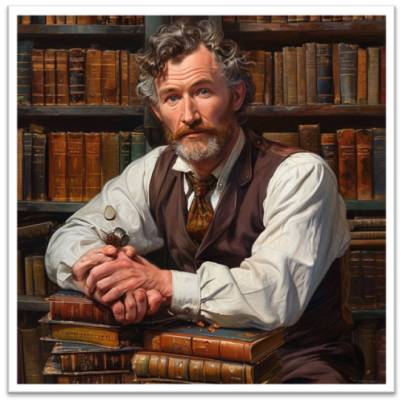
Gloria lived under the weight of unspoken vows. Not because she had broken them, but because she feared she might. Promises, to her, were sacred contracts etched in invisible ink, binding her to a future she couldn’t control. Birthday pledges, casual agreements – all met with a gentle deflection, a murmured “I’ll try,” or a non-committal smile.
This aversion stemmed from childhood. A forgotten playdate, a broken toy – these small betrayals echoed in her memory, amplified by her sensitive heart. Better to offer nothing than to risk the crushing guilt of failing to deliver.
Her relationships suffered. Friends craved assurances, lovers sought commitment. Gloria danced around their expectations, offering support and affection, but never the sweet, solid anchor of a promise. They saw her as unreliable, detached. Little did they know, her fear wasn’t of failing them, but of failing herself.
One day, an old woman, wise and weathered, saw through Gloria’s carefully constructed walls. “The only promise you need to make,” she said, “is to be true to yourself. And that, my dear, is a promise worth keeping.” Gloria finally understood. The real failure wasn’t in breaking a vow, but in denying her own heart.
Story 32

Hamish McTavish of Auchtermuchty was a man forged in the fires of stubborn independence. If a task could be attempted solo, Hamish considered it a personal affront to suggest otherwise. This philosophy, admirable in spirit, often turned simple errands into Herculean labours.
One morning, Hamish decided to hang a picture. “A bairn could do it,” he muttered, refusing his wife Leah’s offer of help. He balanced precariously on a stack of encyclopedias, hammer in hand, picture clutched between his teeth.
Predictably, the tower swayed. Hamish flailed, the hammer swung, and the picture flew across the room, narrowly missing Leah’s prize-winning terrier, Angus. Hamish landed in a heap, amidst a landslide of encyclopedias.
Dusting himself off, he declared, “Just needed a wee adjustment, that’s all!” Leah, suppressing a giggle, simply pointed to the perfectly centred, expertly hung picture she’d put up while he was occupied. Hamish, begrudgingly impressed, grumbled, “Aye, well, a stopped clock is right twice a day.”
Story 33
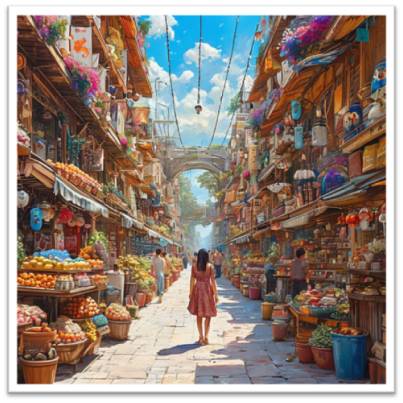
At the university, she was always a model of strictness: black dresses, neat blouses, hair pulled back into a bun. Every day, upcoming lectures reminded her of the invisible line separating her world from the bright colours of life that were raging outside the university. The fear of making a mistake tormented her – as if invisible threads were pulling her back, forcing her to obey the rules that over time had become etiquette.
But one day, walking past an abandoned corridor, she heard laughter. Looking inside, she saw a group of students free from the attraction of correctness. They were drawing and laughing, their clothes were bright, like a spring flower garden. And at that moment, a slight discontent was born in her heart – how she had sacrificed herself on the altar of discipline!
With each new thought of freedom, her spirit rebelled more and more. She suddenly realised that fear is a tool created for control. And the more she understood, the clearer her goal became: not just to fit in, but to be herself, to leave the strictness behind and let her soul blossom. Now this inner freedom became her true clothing, finally ready to face the world.
Story 34
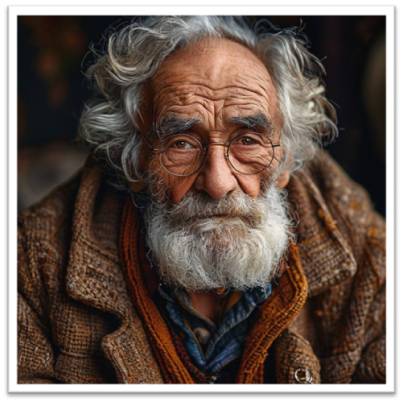
In a world where value was dictated solely by the whims of the marketplace, the currency of life itself began to erode. People roamed vast aisles of shimmering products, their hearts heavy with desire, yet, light with the transient nature of ownership. Each acquisition, once a symbol of fulfillment, morphed into an empty promise of happiness.
Valerie, a once passionate artist, found herself selling her creations to the highest bidder, watched as her masterpieces transformed into mere commodities. Each painting, stripped of its soul, fetched a price but never inspired.
In the bustling city square, traders bartered not just goods, but moments – a hug here, a laughter there, all assigned a price tag that hollered at the soul. The deeper the plunge into consumerism, the more insatiable the hunger for more.
So, a strange fog settled over the populace. The joy once found in simple things faded; homes filled with objects but lacked warmth. And Valerie, staring at an enormous canvas in a stark, sterile gallery, understood that the true currency of life – love, artistry, connection – was now ancient history, overshadowed by the relentless pursuit of excess.
Story 35

The old man, Silas, wasn’t wealthy, nor famous, but he possessed a rare gift. It radiated from him, a gentle aura of kindness that drew people in. His eyes, though aged, sparkled with an understanding that transcended words.
Children would gather around him, listening to his simple stories filled with empathy. He taught them to see the world through others’ eyes, to understand their pain and celebrate their joys.
Adults, hardened by life, sought his counsel. Silas never judged, only offered a quiet space for reflection. He reminded them of the simple power of gratitude, of finding beauty in the mundane.
His garden, overflowing with flowers, mirrored his soul – vibrant, resilient, and shared freely with all. Silas showed them that true wealth wasn’t in possessions, but in the richness of a compassionate heart. He left behind no fortune, but a legacy of kindness that continued to blossom long after he was gone.
Story 36

In a busy crowded city nestled between even bigger cities, Zara endured relentless abdominal pain, a discomfort that seemed to attach itself to her with every passing day. Each ache whispered dark secrets, compelling her to the sterile halls of the local hospital, where she sought answers, convinced that appendicitis lay in wait within her.
After countless tests and scans, the doctors were baffled. They probed her with questions, seeking a physical ailment to explain her torment. It was during such a visit that Dr. Levin, with his wise eyes and gentle demeanour, paused and looked deep into her soul. “Zara,” he said softly, “this is not a problem of the body. This pain… it stems from fear. Fear of life itself. You are blocking the good that wishes to flow into you.”
Those words struck her like a revelation. In that moment, Zara understood that the physical pain she felt was a manifestation of her inner turmoil – a fear of vulnerability, of joy, of truly living. With a determined heart, she began to confront her fears, embracing the unknown, slowly unravelling the chains that had bound her for so long.
Story 37

In the most beautiful town, Arianna fancied herself the maestro of life. Every minute of her busy schedule was controlled, down to the exact moment when her coffee would reach the perfect temperature. She even had an app that reminded her when to water her daisies, which – much to her dog’s chagrin – she insisted bloomed exactly on schedule.
But Arianna’s body had other plans. Her thyroid, a minuscule gland nestled like an uninvited guest, was staging a subtle rebellion. While Arianna was busy timing the bursts of her bonsai trees like the next Olympic event, her energy tanked, and her moods swung like a pendulum.
Yet, she pressed on, undeterred. “Life needs control!” she declared, while sipping her meticulously measured almond milk latte. One sunny afternoon, she noticed that her prized roses refused to bloom on command. In a fit of indignation, she announced a “Blossom Summit” with her plants, armed with charts and motivational speeches.
Alas, the roses, unconcerned with schedules, laughed in floral silence, leaving Arianna to ponder that sometimes, even nature craves a little chaos.
Story 38
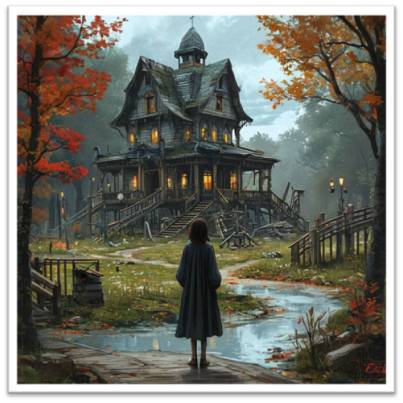
Ellina had always been a fragile figure, wrapped in the shadows of loss. At three, she stood at the edge of an abyss – a cold, unyielding void that swallowed her mother’s laughter, leaving only echoes of what could have been. By twelve, the innocence of youth wore thin, replaced by a haunting resolve. She vowed to shield the world from harm, transforming into a guardian of sorts; she became the caretaker of playgrounds, the saviour of broken toys, oblivious to the facades she built around herself.
Yet, something shifted one cloudy afternoon. As she looked at the trembling leaves, a wave of dread surged within her – a fear stitched from the fabric of the childhood. What if she could not protect them? What if her efforts were futile against the inevitable? The darkness loomed closer, whispering cruel truths of mortality. In that moment, the girl became an adult, confronting the specter of her own vulnerability.
For the first time, Ellina felt the weight of life’s fragility pressing down upon her chest. As she was walking home, the sky darkened, mirroring the tumult in her heart. She understood then: true bravery was not merely in protection, but in accepting and embracing the unyielding truth of existence.
Story 39
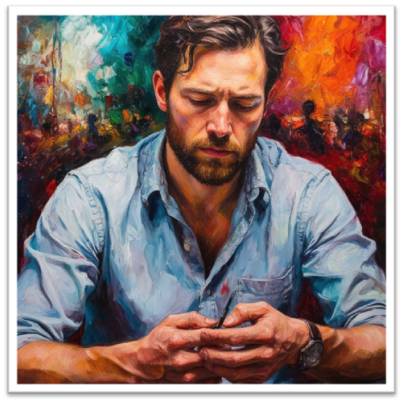
At 35, Nathan discovered a wellspring of power within himself, a force that manifested as poetry. Words poured out of him, raw and vibrant, painting vivid pictures of the world. He felt alive, finally. Emboldened, he shared his verses, eager for connection.
But the world responded with criticism, sharp and dismissive. The sting of rejection was a poison that seeped into his soul.
Конец ознакомительного фрагмента.
Текст предоставлен ООО «Литрес».
Прочитайте эту книгу целиком, купив полную легальную версию на Литрес.
Безопасно оплатить книгу можно банковской картой Visa, MasterCard, Maestro, со счета мобильного телефона, с платежного терминала, в салоне МТС или Связной, через PayPal, WebMoney, Яндекс.Деньги, QIWI Кошелек, бонусными картами или другим удобным Вам способом.




